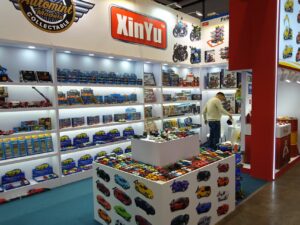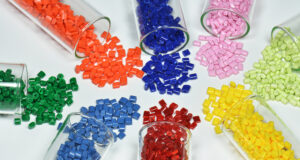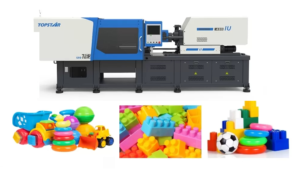What is an OEM Factory?
An Original Equipment Manufacturer (OEM) factory is an entity that produces products or components that are used in the production of goods sold under another company’s brand name. In the context of diecast cars, these factories are integral to the design, engineering, and manufacturing processes that underpin the entire diecast vehicle market. OEM factories specialize in creating precise models that closely mimic the specifications provided by their clients, who may be toy companies, collectors, or automotive brands.
The fundamental role of an OEM factory in diecast car production begins with the design phase, where the unit’s specifications are mapped out. Designers collaborate with clients to ensure that the final product meets the expected standards of quality, detail, and accuracy. Once the design is solidified, the factory employs advanced engineering techniques to develop molds and components necessary for the production process. This meticulous attention to detail is crucial in the diecast car market, where collectors and enthusiasts prize authenticity and craftsmanship.
Moreover, OEM factories are pivotal in the actual manufacturing of diecast cars. Utilizing advanced machinery and skilled labor, they transform raw materials into finished diecast models. The efficiencies realized in these factories often lead to a significant reduction in costs, allowing companies to offer competitively priced products without sacrificing quality. The diecast car industry, therefore, heavily relies on OEM factories not just for manufacturing, but also for innovation, as these manufacturers stay abreast of technological advancements that can enhance production efficiency.
Across multiple industries, OEM factories serve as essential suppliers, showcasing their significance not only in diecast car production but also in sectors such as electronics, aerospace, and automotive parts. Their broad capabilities and focused expertise enable them to cater to diverse market needs, establishing their role as crucial partners in the manufacturing landscape.
OEM vs ODM vs EMS: Key Differences at a Glance
To better understand the manufacturing landscape, it’s crucial to distinguish between three common models: OEM (Original Equipment Manufacturing), ODM (Original Design Manufacturing), and EMS (Electronic Manufacturing Services). The table below outlines their core differences.
| Feature / Model | OEM (Original Equipment Manufacturer) | ODM (Original Design Manufacturer) | EMS (Electronic Manufacturing Services) |
|---|---|---|---|
| Core Competency | Build to Print Manufactures according to the client’s complete design specifications and blueprints. |
Design + Manufacturing Provides turnkey services from product design and development to full-scale manufacturing. |
Specialized Contract Manufacturing Focuses on production execution, especially assembly, testing, and supply chain management for electronics. |
| Intellectual Property (IP) | Owned by the Client The client retains full IP rights for the product design. |
Typically Owned by the ODM The ODM owns the base design IP. Clients can buy “white-label” products or request minor modifications. |
Owned by the Client The EMS provider does not own the product IP; they are a service provider for production only. |
| Client Involvement | High The client is deeply involved in design, specifications, and quality control standards. |
Medium to Low The client primarily selects from existing designs and applies branding, with little involvement in R&D. |
High (on production side) The client must provide complete production files (e.g., BOM, Gerber files) and closely manage production and supply chain. |
| Ideal Use Case | Brand owners with strong in-house R&D and unique patents who require strict confidentiality and precise control over the product. | Startups or brands looking to enter the market quickly, minimize R&D investment, and reduce risk. Common in consumer electronics and small appliances. | Brand companies that need to outsource complex electronics manufacturing (e.g., PCBA, complete devices) to focus on core R&D and marketing. |
| Key Advantages | High product uniqueness, perfect brand alignment, and full control over core technology. | Fast time-to-market, low R&D cost, and access to the ODM’s proven designs and economies of scale. | High manufacturing expertise, significant economies of scale, and effective management of complex supply chains, reducing production costs. |
| Potential Challenges | High upfront R&D investment and longer cycles; requires strong supply chain management capabilities. | Risk of product commoditization; weaker control over the supply chain and core technology. | Relatively lower margins (pure contracting); the brand must have strong engineering and QC capabilities to manage the contractor. |
How to Choose Based on Your Needs?
-
Choose an OEM when “Your Design, Your Vision” is paramount. You possess the complete design blueprint and need a skilled “executor” to realize it precisely while protecting your core IP. Ideal for diecast/model brands, companies with proprietary technology.
-
Choose an ODM when “Speed, Cost-Efficiency, and Convenience” are critical. You leverage the ODM’s existing, to launch a product rapidly and cost-effectively, focusing mainly on branding and minor tweaks. Best for startups, brands expanding product lines quickly, or companies lacking design experience in a specific category.
-
Choose an EMS when “Expert Manufacturing, At Your Service” is the goal. Your core competency is in electronics design and R&D, but you want to outsource complex production, procurement, and testing to specialists to improve efficiency and reduce costs. Primarily for consumer electronics brands and hardware tech companies.
Understanding these differences is the first step in selecting the right manufacturing partner to bring your product vision to life successfully.
The Diecast Car Manufacturing Process
The manufacturing process of diecast cars at OEM factories involves a series of meticulously orchestrated steps that transform raw materials into intricately designed models. It begins with the initial design phase, where engineers and designers collaborate to create concept drawings that outline not only the aesthetics but also the functional features of the diecast cars. Advanced software tools and 3D printing technologies are often utilized during this phase to ensure precision and innovation.
Once the design is finalized, the next step is the creation of molds, which are integral to the die-casting process. These molds are typically made from high-strength steel to withstand the intense heat and pressure required during manufacturing. The production stage follows, where molten metal, often zinc or aluminum, is injected into the molds under high pressure. This technique ensures that the diecast cars have intricate details and a robust structure.
After the initial casting, the models undergo polishing and surface finishing. This is a crucial phase, as it enhances the visual appeal of the diecast cars. Polishing removes any imperfections left from the casting process, resulting in a smooth surface ready for further detailing. Following this, the models are subjected to quality testing to meet industry standards. This includes assessments of durability, color accuracy, and functionality to ensure that the diecast cars are not only visually attractive but also robust enough for intended use.
Finally, the assembly process takes place, where individual components are fitted together, and the painting is applied. The painting phase employs various techniques, including spray painting and hand painting, to achieve detailed finishes and vibrant colors. Once assembled and painted, the diecast cars are inspected once more before packaging and being shipped to retailers or collectors, ensuring that every model reflects the high standards associated with OEM production.
More Details About, Please Visit Diecast Manufacturing Process
Benefits of Using OEM Factories for Diecast Car Production
In the realm of diecast car production, partnering with Original Equipment Manufacturer (OEM) factories offers several advantages that can significantly enhance business operations. One of the primary benefits is cost-effectiveness. OEM factories typically have established supply chains and manufacturing processes, which can help reduce production costs. By leveraging their economies of scale, businesses can obtain high-quality diecast vehicles at a lower price, enabling them to maintain competitive pricing in the market.
Furthermore, OEM factories bring a wealth of expertise in manufacturing diecast products. These factories specialize in producing complex models with intricate details, allowing for higher quality and more precise replicas. Their skilled workforce and advanced techniques ensure that each diecast car meets stringent quality standards, minimizing defects and enhancing overall customer satisfaction. This level of expertise is invaluable for companies looking to build a reputation for excellence in diecast car production.
Another significant advantage of using OEM factories is the scalability of production. As demand for diecast cars fluctuates, OEM partners can adjust production volumes quickly and efficiently. This flexibility allows businesses to respond promptly to market trends, ensuring they are always meeting customer needs without incurring excessive costs associated with unused inventory.
Access to advanced technology is yet another premium benefit of collaborating with OEM factories. These manufacturers are often at the forefront of technological advancements in diecasting and can implement the latest innovations. This not only enhances production efficiency but also opens doors for developing more intricate designs and features, adding value to the final products.
Finally, partnering with OEM factories can significantly enhance brand value by providing standardization and consistency in the quality of diecast products. This consistency builds trust with customers and fosters brand loyalty, making OEM factories a preferred choice for companies in the diecast car industry.
Choosing the Right OEM Factory for Your Diecast Cars
Selecting the appropriate OEM factory for diecast cars involves a multifaceted approach, as various factors can significantly influence the quality and efficiency of production. One of the primary considerations is the experience of the factory in producing diecast vehicles. It is advantageous to partner with a manufacturer that has a proven track record and specializes in diecast models, as this expertise often translates into higher quality and better design capabilities. Researching the factory’s portfolio and customer testimonials can provide insight into their reliability and craftsmanship.
Additionally, evaluating the production capabilities of the factory is crucial. This includes assessing their technological advancements, machinery, and workforce skills. An OEM factory should have the capacity to meet your specific production demands, whether you require a small batch of customized diecast cars or high-volume production. Understanding the factory’s processes can help ensure they can accommodate unique features or intricate designs that distinguish your models in the market.
Communication and collaboration efficiency are also key factors to consider. The ability to maintain open lines of communication with the OEM can facilitate a smoother workflow and quicker resolution of any issues that may arise during production. Establishing a strong partnership built on trust and transparency can contribute significantly to the overall success of the diecast car project.
Quality standards should never be overlooked, as adherence to these benchmarks ensures the integrity and durability of the diecast cars. It is advisable to inquire about the factory’s quality control processes, certifications, and any relevant industry standards they comply with. Finally, geographical considerations may also play a role in your decision, as proximity can affect shipping times and costs, which are critical for timely delivery.
By taking these essential criteria into account, businesses can make more informed decisions when seeking OEM partners, ultimately leading to higher quality products and successful outcomes in the diecast car production industry.
Frequently Asked Questions (FAQ)
Q: What’s the difference between OEM and ODM?
A: The fundamental difference lies in who owns and creates the product design:
-
OEM (Original Equipment Manufacturer): You provide the complete design and specifications. The factory manufactures exactly what you designed. You retain 100% intellectual property rights.
-
ODM (Original Design Manufacturer): The factory provides both the design AND manufacturing. You typically choose from their existing designs or provide basic concepts which they develop fully. They often retain the base design IP, while you own your branded version.
Q: How much does it cost to work with an OEM factory?
A: Costs vary significantly based on several factors:
-
Tooling/Mold Costs: One-time setup fees for creating custom molds (for diecast cars, this can range from $5,000 to $50,000+ depending on complexity)
-
Per-Unit Production Costs: Depends on materials, size, complexity, and order quantity
-
Minimum Order Quantity (MOQ): Most factories require MOQs, typically ranging from 500 to 10,000 units for cost efficiency
-
Additional Costs: Design services, quality control, certification, packaging, and shipping
Generally, expect higher initial investment but lower per-unit costs at scale compared to other manufacturing models.
Q: What are the risks of using an OEM?
A: Key risks include:
-
High Initial Investment: Significant upfront costs for tooling and setup
-
Supply Chain Dependencies: Your production relies on their reliability and capacity
-
Intellectual Property Protection: Need strong contracts to protect your designs
-
Quality Control Challenges: Requires active oversight and clear specifications
-
Longer Time-to-Market: Custom design and tooling extend development timelines
-
Scalability Issues: Some factories struggle with rapid scaling
These risks can be mitigated through thorough due diligence, clear contracts, and ongoing relationship management.
Q: Can OEM factories handle small order quantities?
A: This varies by factory:
-
Traditional OEMs: Often require substantial MOQs (1,000+ units) to justify setup costs
-
Specialized/Niche OEMs: Some cater to smaller batches (100-500 units), especially for premium or prototype products
-
Hybrid Models: Some factories offer shared tooling or modular designs for smaller runs
For small quantities, expect:
-
Higher per-unit costs
-
Limited customization options
-
Longer lead times for setup
-
Potential for “prototype-only” services
Q: How do I protect my designs when working with an OEM?
A: Implement multiple protection layers:
-
Legal: Comprehensive NDA (Non-Disclosure Agreement) and IP clauses in contracts
-
Technical: Split manufacturing processes between different factories when possible
-
Documentation: Detailed design specifications with version control
-
Relationship: Build trust through long-term partnerships rather than one-off projects
-
Geographic Considerations: Consider legal protections available in the factory’s jurisdiction
Q: What quality control measures should I expect from an OEM?
A: Reputable OEMs should provide:
-
Pre-production Samples: For approval before mass production
-
In-process Inspections: At various stages of production
-
Final Random Inspections: AQL (Acceptable Quality Level) sampling
-
Testing Reports: Material composition, safety, durability tests
-
Certification Compliance: ISO standards, industry-specific certifications
-
Corrective Action Plans: For addressing quality issues








